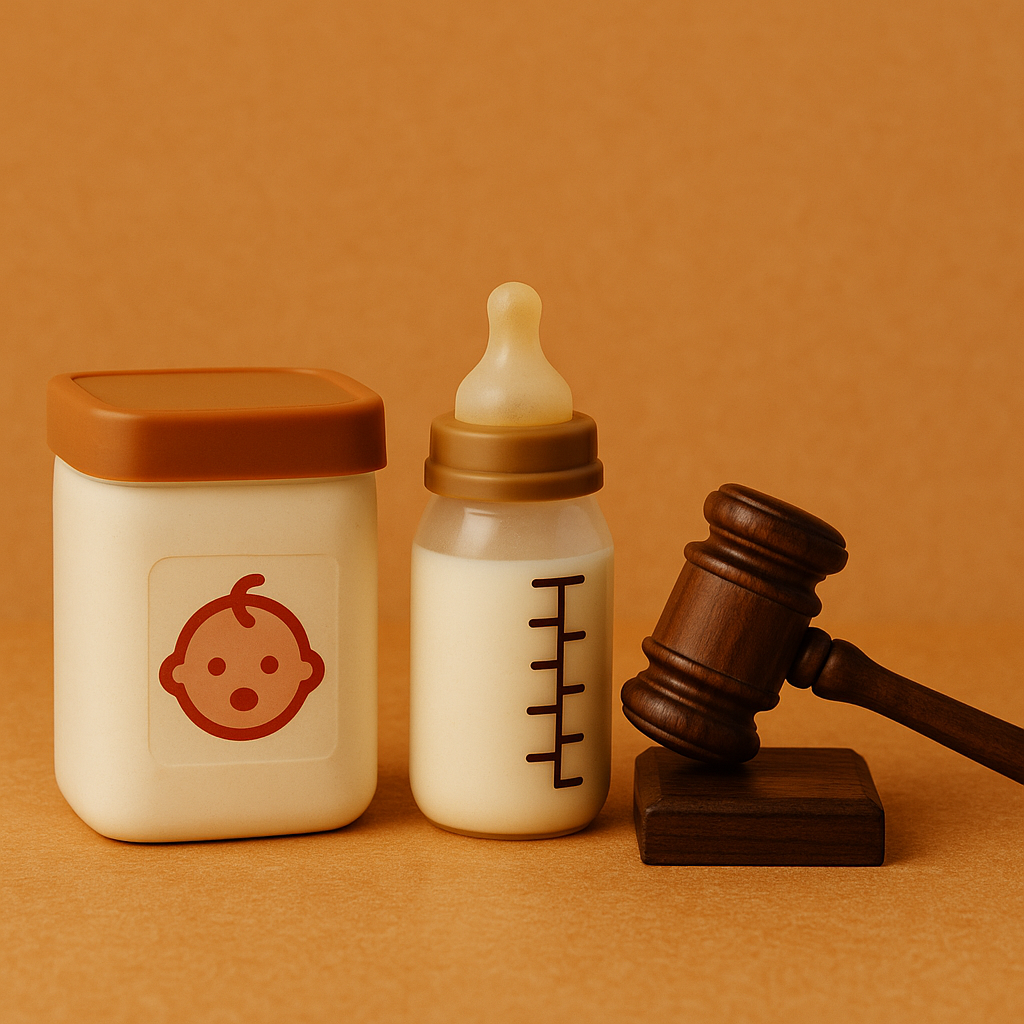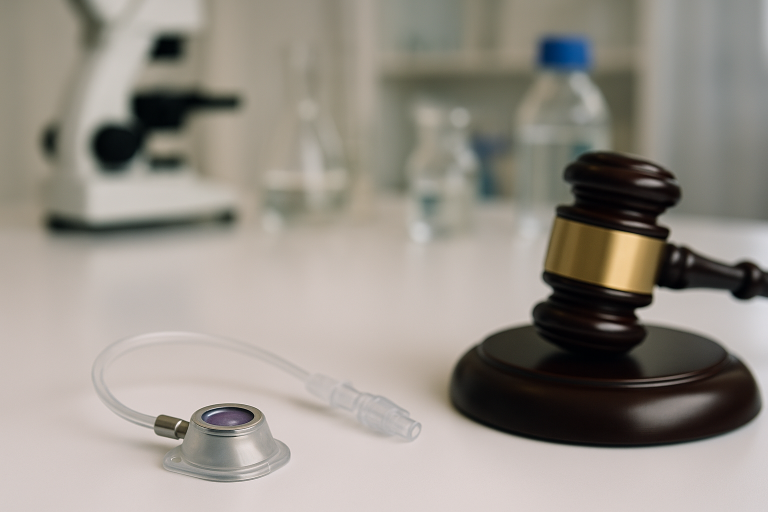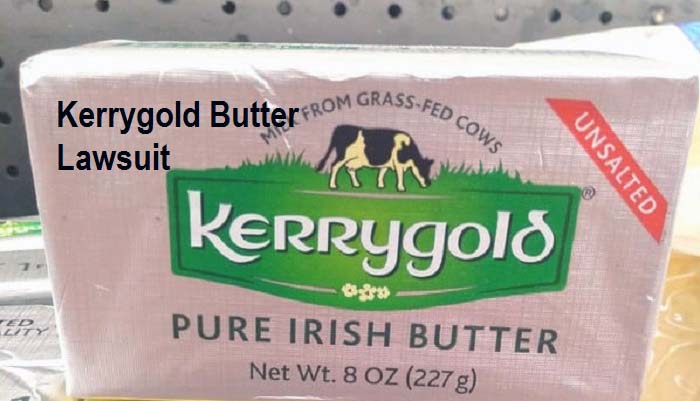The NEC Baby Formula Lawsuit includes hundreds of legal cases against major formula companies. Parents say formulas like Similac and Enfamil caused NEC in their premature babies. NEC is a deadly intestinal disease that can develop quickly and cause permanent harm or death. You may not know the risk when using these products. Parents didn’t either. That’s the heart of this lawsuit.
Companies promoted cow’s milk-based formula without warnings. They sold it to hospitals and NICUs without explaining the danger. That silence cost lives. Parents trusted doctors and hospitals to protect their children. Hospitals trusted the formula companies. That trust broke when infants developed NEC after being fed cow’s milk-based formula. These lawsuits aim to hold companies responsible and to ensure families never face this risk again without full transparency.
The families want justice. They want financial support for medical bills, trauma, and loss. They also want changes in how formulas are labeled and promoted. As more trials begin in 2025, this lawsuit could change how formula companies do business.
What Is NEC and Why Is It Dangerous?
Before you understand the legal battle, you need to understand what NEC does to a newborn. This section explains the condition and how it affects premature infants.
What Is NEC?
NEC stands for necrotizing enterocolitis. This condition causes inflammation in the intestines. It breaks down tissue and creates holes in the intestinal wall. The infection spreads into the baby’s abdomen and bloodstream. Premature babies have weaker immune systems, so they’re more vulnerable. Once NEC starts, it spreads fast. The first signs can include stomach swelling, blood in the stool, or reduced activity. Some babies stop feeding and show signs of pain. Emergency surgery is often the only option.
The survival rate is low for severe NEC. Even if the baby survives, they may need part of their intestine removed. That can lead to long-term feeding problems and developmental delays. Many children live with chronic conditions caused by NEC.
What Causes NEC?
NEC is not caused by one single factor. But doctors have identified several triggers. Premature birth, low birth weight, oxygen deprivation, and infections increase risk. The key trigger in these lawsuits is formula feeding. Cow’s milk formula is harder for a premature baby’s stomach to digest. It may cause inflammation or allow harmful bacteria to grow. That sets off the chain of events leading to NEC.
Breast milk contains antibodies and nutrients that support gut health. It also reduces the chance of NEC. That’s why feeding decisions in NICUs matter so much. A single feeding decision can mean the difference between life and death.
Who Are the Defendants in the NEC Baby Formula Lawsuit?
This section names the companies involved in the lawsuit and explains why they are being sued by so many families.
Which Companies Are Being Sued?
Two formula manufacturers are named in most lawsuits:
- Abbott Laboratories, the maker of Similac products
- Mead Johnson Nutrition, the maker of Enfamil products
These companies are among the largest in the infant nutrition industry. Their products are sold around the world. Many hospitals and NICUs receive formula from these brands through corporate partnerships or donations. The lawsuits claim that both companies failed to warn consumers. They sold their products to hospitals, knowing the increased risk of NEC in premature babies. They used marketing materials that suggested their formulas were safe, even when internal data showed otherwise.
Marketing strategies focused on growth benefits and nutritional value. But they ignored the serious risks for premature infants. Parents and doctors relied on these claims. As a result, many babies were fed products linked to deadly complications.
What Products Are Involved?
The lawsuits focus on specific products used for preterm infants:
- Similac Special Care: a high-calorie formula for preemies
- Similac NeoSure: designed for catch-up growth after discharge
- Enfamil Premature Infant Formula: used in NICUs
- Enfamil NeuroPro: marketed for brain development
These products were used in hospitals, often as the first or only food for vulnerable newborns. They were provided without warnings about NEC. Parents say that if they had known the risks, they would have chosen donor milk or other safer options.
What Does the Science Say About NEC and Formula?
Let’s examine how studies support the lawsuits and what experts say about the health risks.
Research Linking Formula to NEC
Multiple peer-reviewed studies show a strong link between NEC and cow’s milk formula. A key study in The Lancet reported that premature babies fed formula were up to ten times more likely to develop NEC. The data came from hospitals that tracked infant outcomes across feeding types.
A more recent study in Pediatrics found similar results. Even small amounts of formula increased the risk. Hospitals that replaced formula with donor milk had fewer NEC cases. These results repeated in various settings.
The lawsuits argue that companies knew this evidence. They knew their products carried risk. But they chose not to warn doctors or parents. Instead, they kept claiming their products were suitable for fragile newborns.
What Medical Guidelines Recommend
Medical groups support breast milk for all babies, especially premature ones. The American Academy of Pediatrics advises hospitals to prioritize human milk. If a mother cannot provide milk, donor milk is the preferred option.
Formula makers ignored those guidelines. They marketed formulas as safe substitutes without mentioning NEC risks. That misled health care providers and created false confidence in dangerous products.
What Legal Claims Are Being Made?
Let’s break down what families are claiming and how courts are handling these lawsuits.
Failure to Warn
The lawsuits say companies failed to add warning labels. They claim that any product linked to NEC should include language explaining the risks. That warning was never added. Parents say that if they saw such warnings, they would have made different choices. They argue the silence around risk took that choice away.
Negligence and Product Defect
Families claim the formulas are unreasonably dangerous for premature infants. The suits argue that the companies had enough scientific evidence to change their products or limit use. But they didn’t. Lawyers say this is negligence. They also call it a defective product. They want courts to hold the companies accountable for the harm they caused.
What Happens Next in the NEC Lawsuit?
This section explains the legal process and what families can expect moving forward.
Multidistrict Litigation
These lawsuits are part of a multidistrict litigation (MDL). The MDL is based in Illinois. It combines hundreds of similar cases from across the country. This setup speeds up early decisions and helps courts avoid repeating the same hearings. Bellwether trials will test the strength of the claims. These first cases will guide later decisions or settlements.
Compensation Being Sought
Families want the companies to pay for medical care, funeral expenses, and pain. Some also want punitive damages. These damages punish companies for ignoring warnings and misleading families. Some NEC cases required multiple surgeries and left children with permanent disabilities. These damages reflect those long-term costs.
Possible Policy Changes
Lawmakers in several states are considering bills that would force formula makers to include NEC warnings. If passed, this would be the first legal step toward industry reform.
FAQ About NEC Baby Formula Lawsuit
What is the NEC Baby Formula Lawsuit?
It’s a group of lawsuits claiming Similac and Enfamil caused NEC in premature infants.
What is NEC?
NEC is a disease that kills intestinal tissue and spreads infection, mostly in preterm babies.
Who is suing?
Parents and hospitals are suing Abbott and Mead Johnson for failing to warn about NEC risk.
What do families want?
They want compensation for medical bills, pain, and long-term health issues.
Is there scientific proof?
Yes. Multiple studies show cow’s milk-based formulas increase NEC risk.
What’s next?
Bellwether trials in 2025 could set the course for settlements and new safety rules.




